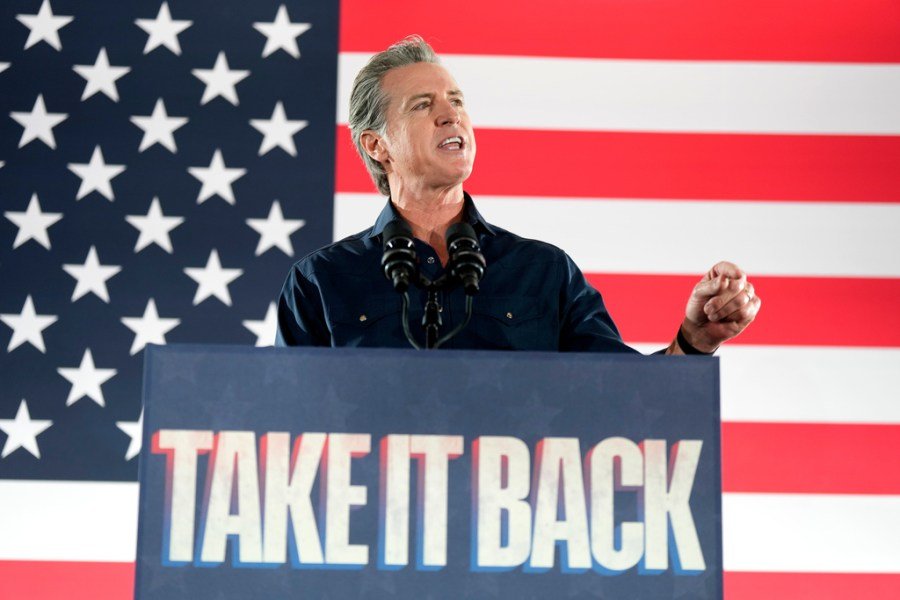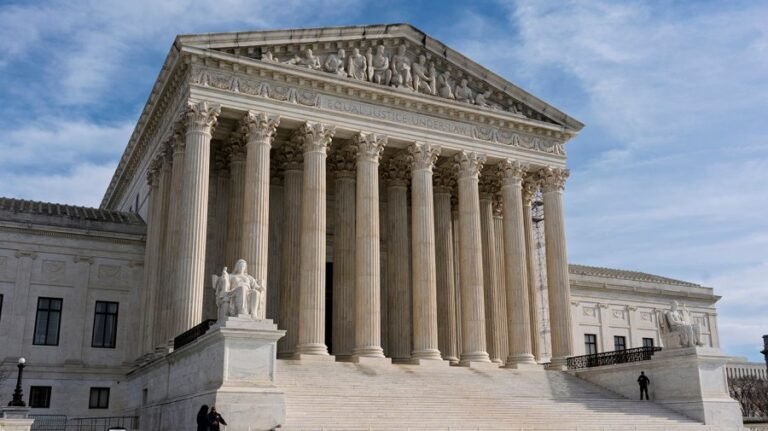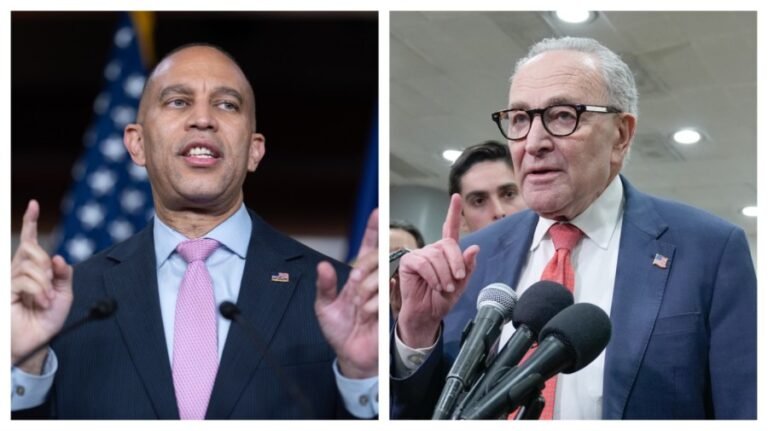
It is time once again for this column’s coveted Politician of the Year award.
For the last 15 years, I have crowned the politician who — for better or worse — made the biggest impact on American politics that year.
I normally announce my selection after Thanksgiving, to stay a step ahead of Time magazine’s Person of the Year. But this year, my timetable has been moved forward. The champ is now obvious in light of last week’s passage of Proposition 50 in California, the “Election Rigging Response Act.”
The winner of 2025’s Politician of the Year award is Gavin Newsom.
The Golden State’s governor gets the prize because he led the way to get the national Democratic Party back on its feet.
Newsom answered the bell after Democrats fell to their knees with self-loathing after their deflating loss to President Trump in 2024. Seeing Republicans grab control of the House, Senate and White House left Democrats on the ropes and depressed.
But Newsom stood up and punched back. In 2025 he mocked Trump with parodies of Trump’s social media memes. Newsom trolled Trump with Trump-style outrageous bragging in all-capital letters on social media.
Here’s one: “FINAL WARNING DONALD TRUMP … STOP CHEATING OR CALIFORNIA WILL REDRAW [CONGRESSIONAL MAPS]. AND GUESS WHO WILL ANNOUNCE IT THIS WEEK? GAVIN NEWSOM (MANY SAY THE MOST LOVED & HANDSOME GOVERNOR).”
But Newsom’s biggest win was persuading voters in his state to counter Trump’s plan to stack the 2026 midterm elections.
Fearing defeat in next year’s midterms, Trump is pushing Republicans to eliminate as many Democratic-leaning districts as possible to improve Republican chances to hold their House majority.
Trump’s use of that devious tactic has led some Republican majority states, notably Texas, to redraw their congressional districts to reduce likely wins for Democrats.
Newsom’s smart response was to pave the way for California to add five new seats that favor Democrats. His referendum was a winner with California voters last week. And it set an example. Virginia Gov.-elect Abigail Spanberger has already voiced support for redrawing her state’s maps to net Democrats three additional seats.
Until Newsom acted, Trump was getting away with changing the rules mid-decade.
Since Trump’s return to the White House earlier this year, dispirited Democrats have been crying out for a leader to fight back against Trump’s authoritarianism. That frustration explains Democrats’ chronically low approval ratings. People who are registered Democrats disapprove of their leadership’s lack of fight.
But it is now clear that there are Democrats full of fight in the states.
Illinois Gov. JB Pritzker stood up to the masked ICE agents terrorizing Chicago residents. Zohran Mamdani won the New York mayoral race while standing up to Trump’s efforts to demonize him as a “little communist.” After winning the mayoral election, Mamdani, in his victory speech, spoke directly to Trump by telling him, “I know you are watching, I have four words for you: turn up the volume.”
And in addition to standing up to Trump’s mid-decade redistricting, Newsom has backed aggressive litigation against Trump’s use of the National Guard to intimidate people in states led by Democrats.
Early in the year, Newsom risked backlash from his fellow Democrats by launching a podcast featuring candid conversations with Trump-friendly conservatives. His first guest was Charlie Kirk, the right-wing provocateur who later was tragically assassinated.
Republicans deride Newsom as a California liberal who is to blame for high taxes and the state’s housing crisis. He was widely criticized for dining without a mask at a fancy California restaurant despite imposing limits on indoor crowds and mask mandates during the COVID-19 crisis. And the California Coastal Commission is often a target of conservatives for being slow to approve new construction. Golden State regulatory agencies are described as case studies in bureaucratic dysfunction in the book “Abundance,” by Ezra Klein and Derek Thompson.
But Newsom now appears well-positioned as a bridge across the party’s ideological divide between progressive activists and moderates heading into 2026.
As mayor of San Francisco, he championed same-sex marriage legalization a decade before the Supreme Court upheld it in 2015 — courageous and ahead of its time during the George W. Bush era. He backs access to abortion, gun control and a higher minimum wage.
After last week’s victories, Newsom has a deep bench of like-minded Democrats who might consider being his partner on a 2028 ticket.
With moderate Democrats winning gubernatorial races in New Jersey and Virginia, Newsom can bring similar, reasonable energy to a presidential run in 2028.
And the tall, telegenic politician appreciates the importance of image in this age of social media.
Newsom also has access to major California donors. And if the Democratic primary calendar keeps elements of the Biden-era rules, it could favor Newsom with early contests in the South and West.
And he can tell voters everywhere he succeeded in keeping the door open for his party to have a successful midterm election in 2026.
Last year’s Politician of the Year was former Rep. Liz Cheney (R-Wyo.). With her father, the late Vice President Dick Cheney, she was shunned by her own party as the price of opposing Trump’s return.
This year’s winner, Newsom, is her opposite — a future face of his own party.
Juan Williams is senior political analyst for Fox News Channel and a prize-winning civil rights historian. He is the author of the new book “New Prize for These Eyes: The Rise of America’s Second Civil Rights Movement.”


